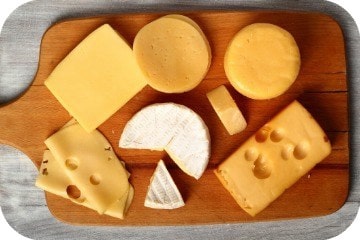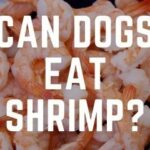Can dogs eat pretzels? No, dogs should not eat pretzels due to the high levels of sodium and salt.
Snacks like pretzels are a popular snack for humans, which can be tempting to share with our dogs.
Unfortunately, pretzels cannot be a shared snack between humans and dogs due to salt and sodium.
Read more to find out why salt and sodium is bad for dogs as well as other snack alternatives we can share with our dogs.
Busy? Get Your Hands Paws On The Answers Quickly…
- Can Dogs Eat Pretzels, Sweetened, Salted, or Normal?
- What Shall I Do If My Dog Eats Pretzels?
- What Snacks Can I Give My Dog Instead Of Pretzels?
- FAQs
CAN DOGS EAT PRETZELS, SWEETENED, SALTED, OR NORMAL?

A pretzel is a type of baked pastry that is typically made from dough, generally shaped into a knot. Pretzels tend to be coated in salt before being cooked at relatively high heat. Pretzels can come in a variety of flavors, including; sweetened, salted, plain, garlic, etc. Unfortunately, none of these flavors are suitable for dogs, as they all can contain high levels of salt.
Unlike grapes or raisins, pretzels are not toxic for dogs, but they are not recommended as they could cause salt poisoning and over a more extended period, develop health issues such as obesity and diabetes.
The association of American feed states that an average dog should obtain 0.3% sodium in their natural diet. To put this into comparison, one pretzel contains around 16%!!
Health Concerns
Pretzels, along with other snacks and food which have high levels of salt, can have severe implications for a dog’s health and well-being. As well as causing salt poisoning, it can also stiffen dogs’ muscles, which inhibits their ability to move. As well as this, it can also cause uncontrollable tremors, which is somewhat disturbing for a dog owner to witness.
Salt Poisoning
If a dog is consuming high levels of salt, it starts to build up in their stomach. Once it starts to build up, it begins to absorb the body’s water at a quick rate. As the dog’s body starts to lose fluid (water), it begins to put a strain on the kidneys and circulatory system.
If you think your dog has consumed above the recommended salt intake, you should keep a close eye and monitor their behavior. If they start to show salt poisoning symptoms (see below), you should contact your local veterinarian straight away to seek professional help and advice.
Salt Poisoning Symptoms:
> Excessive Weeing
> Regular Vomiting
> Dehydration (drinking more than usual)
> Diarrhea
> Swelling around the lips
> Disorientation.
WHAT TO DO IF MY DOG EATS PRETZELS?
If you’ve accidentally dropped some pretzels and your dog has digested them before you could get near, there’s not a huge amount you can do or worry about. That being said, you should, however, closely monitor their behavior to ensure they do now show symptoms of salt poisoning. If they do begin to show any symptoms, you should immediately contact your veterinarian.
The vet will likely ask you to book an appointment so they can examine the dog’s stomach and may ask you to cooperate in paying for a scan.
WHAT SNACKS CAN I GIVE MY DOG INSTEAD OF PRETZELS?

There are a variety of other snacks for dogs that provide them with high levels of nutrients, vitamins, and minerals. Most of the snacks are fruit and vegetables, as these tend to be low in calories yet high in nutrition.
Rather than just feeding the healthy snacks to your dogs, why not make them work for it in stimulating and exciting games!? Click here for cognitive & stimulating games.
Below we have provided a variety of pretzel snack alternatives. The information will give you an insight into the nutritional benefits of each fruit and vegetable and why they’re suitable for dogs.
Apple Chunks
Apple chunks are an excellent treat snack for dogs as it provides them with Vitamin A, Vitamin C, and fiber. It is also low in calories, and they’re a healthy and safe way of satisfying your dog’s sweet tooth, a replacement for toxic foods such as chocolate or high-calorie shop bought treats.
Chewing harder foods such as apples is also good for your dogs’ dental health. However, it is important to note that this shouldn’t be a replacement for their standard dental treatments.
Vitamin A helps to maintain your dogs’ shiny coat, muscle strength, and visibility through the night. Broccoli provides 54IU of vitamin A per 100g towards your dogs’ daily recommendation (22 to 47 IU per KG of dogs weight).
Vitamin C helps your dogs’ immune system to strengthen, thus enhancing their ability to fight off diseases and illnesses. If your dog is to become stressed or anxious, their vitamin C levels may drop. Apples provide your dog with 4.6mg of Vitamin C per 100g of apple.
Celery Bites
Celery is an excellent snack choice for dogs. It is low in calories, fat, and cholesterol and also is an excellent source of fiber, vitamins A, C & K. The crunchy veggie helps to improve a dog’s dental health as well as freshening their breath, something most owners would like!
Due to the size and texture of celery, it is important to chop it up into small bite-size pieces as it could be a choking hazard for your dogs.
Broccoli Florets
Broccoli is an excellent source of nutrients for both dogs and humans. It provides us with vast amounts of protein but at the same time has low levels of fat, carbohydrates, and sugar. Broccoli also provides dogs & humans with vitamins A, B-6, and C as well as iron and calcium.
Vitamin A
Incorporating vitamin A into a dog’s diet will help maintain your dogs’ shiny coat, muscle strength, and visibility through the night. Broccoli provides 12% of vitamin A towards your dogs’ daily recommendation (22 to 47 IU per KG of dogs weight). Other foods that include vitamin A are; carrots, spinach, and cooked sweet potatoes.
Vitamin B6
This helps dogs to control their hormones, specifically those related to thyroid issues. Moderate consumption levels of B6 helps dogs with regulating their weight and water levels as well as helping to maintain a healthy heart. Other foods that provide significant levels of B6 include; fish, turkey, chicken, and wholegrain rice.
Calories
Broccoli is a great treat for your dog, as it is very low in calories (34). The usual treats most owners buy from pet stores can be high in fat and calories. Therefore, this reduces the number of recommended treats your dog should have each day. If you replace these with broccoli treats, you can increase the number of treats or portions however they shouldn’t feel the need to eat more
Sugar
Just like most vegetables, broccoli has quite a low level of sugar. This is key; providing dogs with sugary foods can have serious implications. If you feel your dog has diabetes or a sugar-related illness, it’s advisable to seek assistance from a local vet regarding your dogs’ dietary requirements.
Fiber
Monitoring your dogs’ fiber intake isn’t a necessity. However, moderate levels of fiber have shown to help with a dog’s digestive system.
Watermelon Pieces
Watermelon is 92% water, making it a great refreshing and hydrating treat for dogs. It is low in calories, salt, and fat, as well as containing vitamins A, B6, and C, all of which are essential in a dog’s diet.
Vitamin A
A vitamin A rich diet will help keep your dog’s coat shiny, muscles strong, and good night vision. Other foods rich in vitamin A include cod liver oil, beef liver, sweet potato, and carrots.
Vitamin B6
This vitamin aids with controlling hormones, specifically for thyroid-related issues. Sufficient B6 helps with heart health, weight regulation, and water regulation. Other foods with high B6 levels include eggs, fish, turkey, chicken, and wholegrain rice.
Vitamin C
Several studies have shown that dogs with a sufficient level of vitamin C are better at fighting disease and illnesses. Stress and exhaustion can cause a depletion in vitamin C. Other foods rich in vitamin C include broccoli, spinach, potatoes, and Brussels sprouts.
Calories
This fruit is low in calories and a great refreshing snack for dogs. Watermelon has around 50 calories per cup. Dogs should not consume more than 10% of their calorie intake in treats. So if your dog’s daily calorie intake should be 250 calories, they can safely have 1/2 cup of watermelon as a healthy treat.
Sugar
Watermelon does have high sugar content, and although this is natural sugar (fructose), is it still recommended to eat in moderation.
If your dog does have diabetes or any other condition which could be affected by their sugar intake, make sure to consult a vet before feeding. Alternative low sugar treats, such as vegetables, could be a great alternative.
Fiber
Fiber isn’t a necessity in a dog’s diet and isn’t something ‘wild’ dogs would have eaten. However, it can help with the gut, digestive system, and to keep consistent bowel movements.
Carrot Sticks
Carrots are an excellent snack for dogs due to them being super nutritious and easily affordable. Cooked or raw carrots are full of nutritious vitamins and minerals, including; vitamin A & B6, fiber, potassium, and biotin.
Frozen carrots are a great teething tool for young pups who have discomforting teeth pain. You can also give frozen carrots to older dogs; this will act as a chew toy and improve their dental health.
FAQS

Can Dogs Eat Peanut Butter and Pretzels?
As this article discusses, pretzels are best to be avoided for dogs. The high levels of sodium or salt can cause your dog to become seriously ill. However, peanut butter is an excellent source of protein and can be a great addition to your dogs diet, especially inside a kong toy! For more information regarding peanut butter and dogs’, read our article “Can Dogs Eat Peanut Butter?”.
Is Cheese Bad For Dogs?
Whilst cheese isn’t toxic or poisonous for dogs, and it can cause other issues if eaten on a regular basis. Cheese can be a great treat and works very well when trying to train your pup. However, it should be given in moderation. Due to the high-fat content, cheese shouldn’t be given to your dog on a regular basis, as this will increase their chances of becoming obese.
Can Dogs Eat Watermelon?
Yes! It can be a healthy, hydrating, and refreshing snack for all dog breeds. There are many ways to feed this delicious treat to your dogs, from fresh, freezing, to dehydrating. However, it should be given as a treat in moderation.
Can Dogs Get Chicken Pox?
No. It is species-specific. Chickenpox is only known to affect humans. It is passed through human to human contact. Dogs, or any other animals, cannot carry, or get chickenpox. Chickenpox and shingles are caused by the varicella-zoster virus.
Looking for more pawsome posts? Check these out…
Can Dogs Eat Lettuce?
How To Make A Snuffle Mat
When Do Puppies Lose Their Teeth?
Can Dogs Eat Broccoli?
Can Dogs Eat Watermelon?
Disclaimer: Each dog is different, and every circumstance is different. All efforts have been made to provide accurate information. However, it is not provided by a qualified Veterinarian, Veterinarian Surgeon, or Behaviorist. The information provided is purely educational. The information should not be used as an alternative or substitute for medical care. If you have any health or medical concerns, contact a qualified Veterinary Surgeon or Veterinarian immediately.










No Comment! Be the first one.